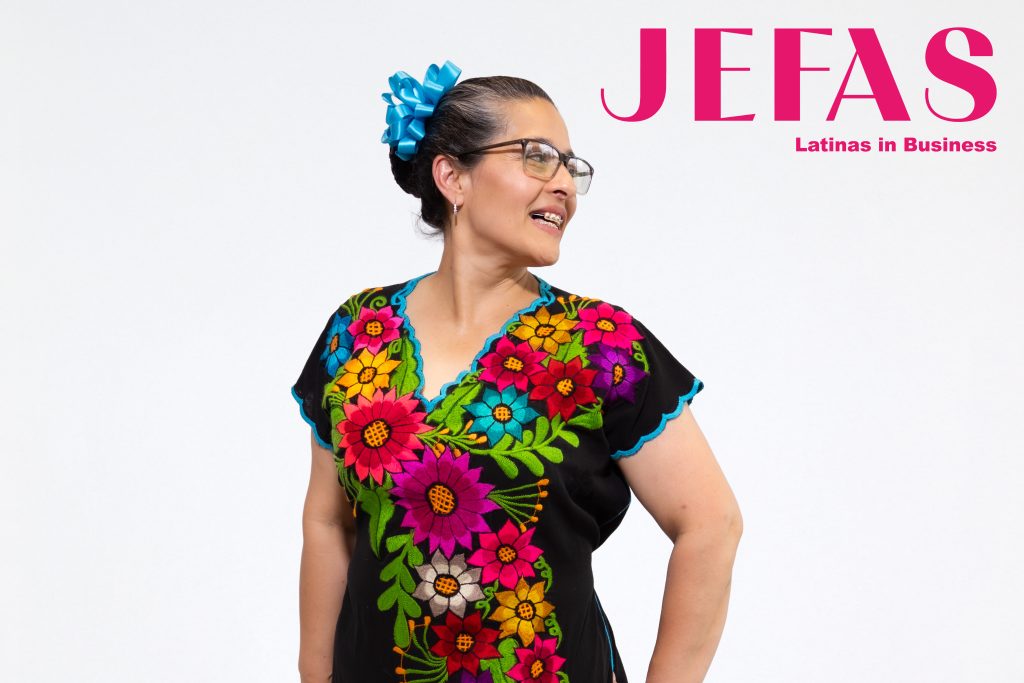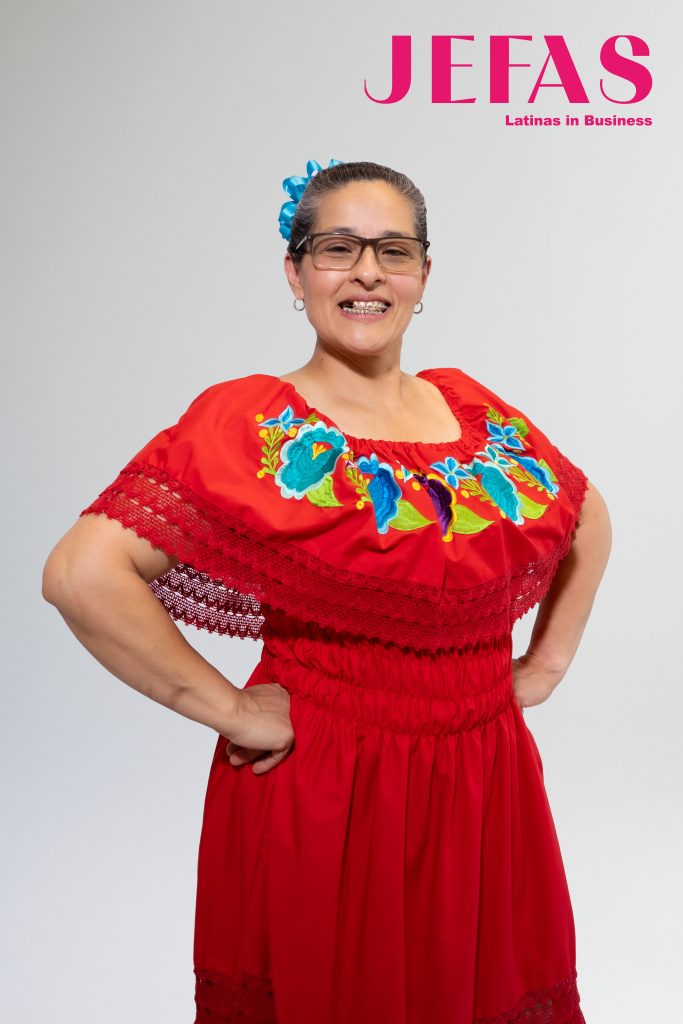Preserving and Sharing Mexican Traditions Through Dance

Hilda Ramos, founder of Jovenes Embajadores. Photo by Tatiana Peña, JEFAS Magazine. Illustration by Marissa Hernandez
By Christina Fernández-Morrow
Jovenes Embajadores almost didn’t happen. What started as a one-time performance grew into a celebrated Mexican folkloric dance group that has entertained Iowans since 2001. The journey began when a Spanish-speaking teacher approached Hilda Ramos just weeks after her move from Jalisco, Mexico to Osceola, Iowa, with an unexpected request: “Do you know any traditional Mexican dances?” As Ramos taught Jarabe Tapatío to a group of mostly non-Latino children, the experience rekindled memories of her own days as a folkloric dancer and became the spark that inspired her to bring her passion to the Heartland.
Preserving Mexican Folklore in Iowa
With a well-established group performing and growing in Osceola, Ramos resolved to keep teaching when her family moved to Des Moines in 2006. She connected with another group, Los Niños de Tepeyac and collaborated with their founder, Beatriz Gallo-Ray. Shortly after, their visions differed and Ramos set off on her own, driven by a deep personal goal: to ensure that her four young children could learn the dances she loved and share their culture with others. “When we decided to live in this country, I didn’t want my children to forget where they came from. I wanted my family to hold on to their culture, their origins.” This led her to expand her teaching to include dances from other states in Mexico. Today, the group performs dances from Chiapas, Veracruz, Colima, Michoacan, Nayarit, Sinaloa, Zacatecas and three distinct styles from Oaxaca.
Challenges and Community Support
As the group’s repertoire grew, so did the challenges. “The hardest thing is funding to make sure we have the costumes we need and they are in good condition,” Ramos explains. Purchasing and maintaining over 100 skirts, shirts, hats, sashes and headpieces requires constant attention and significant investment. Ramos imports all the garments from Mexico to ensure authenticity, but it also incurs a hefty cost. She tries not to pass that on to her students and their families.
To help with costs, Ramos taps into her own resources, often using income generated from the cleaning business she started when she moved to Des Moines. While not a nonprofit or a business, Ramos relies on donations and parental support for not only garments, but other needs, like renting vans to transport their gear to performances across the state. “The parents are invaluable. They help repair, launder and transport a lot of the outfits,” she says, highlighting the collective effort that keeps the group going.

Hilda Ramos, founder of Jovenes Embajadores. Photo by Tatiana Peña, JEFAS Magazine.
Spreading her Joy
Despite the stress, Ramos finds deep fulfillment in choreographing. When she watches audience members’ faces light up at familiar melodies and movements from their homeland, every challenge feels worthwhile. “It’s something that fulfills me. I love doing it and it makes me smile,” she says, excitement in her voice. “It’s stressful, but at the end of the day, it brings me joy.” What energizes her the most is watching relationships develop among the dancers, who start dancing as early as four years old. Often recruited after seeing performances, these children not only learn intricate steps but become teachers themselves, mentoring new dancers. That camaraderie motivates Ramos, reminding her that she’s doing a lot more than just teaching dance moves, she’s creating ambassadors who take pride in showcasing Mexican heritage.
“Sometimes I think, I have to let this go. My body doesn’t move like it used to, but I think I’ll do this until I can no longer move,” she says with a laugh. Her dedication is stronger than her doubts. With performances spanning Central Iowa, Webster City, Lennox, Waterloo, just to name a few, and regular appearances at events like the annual Iowa Latino Heritage Festival, Ramos shows no signs of slowing down. Through Jovenes Embajadores, she’s preserving Mexican folklore, weaving it into the fabric of Iowa communities. It’s more than a passion project, it is part of Latino history that bridges culture and language through song, dance and rich traditions.


